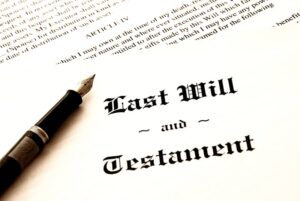
Grey Divorce: Quick Tips
Divorce is rarely easy, but grey divorce – the term for couples over 50 who split up – can be particularly difficult.
The emotional, financial, and logistical challenges may seem daunting at first, but with these tips, you can help make the transition smoother:
1. Take your time
Don’t rush into any decisions. Take the time to reflect on what went wrong and how you want to proceed.
2. Immediately seek legal representation
Divorce laws, procedures, and outcomes can vary greatly from state to state, so it’s important to get advice from an experienced attorney near you who is familiar with the NC divorce laws and local protocols.
Do not assume divorce in North Carolina will be the same as in other states such as South Carolina, Georgia, or Virginia.
An unbiased, realistic assessment from an attorney will help you make informed decisions and protect your interests throughout the divorce process.
The sooner you have legal representation, the better. There are often important steps to take to protect yourself before you say, ‘I want a divorce’ – Bill Powers, Charlotte Divorce Attorney
We can help explain your legal rights, responsibilities, and options.
3. Talk to a therapist
Divorce can be stressful, no matter your age or the length of your marriage.
That’s particularly true if there are allegations of marital infidelity, sexual misconduct, or abuse.
What is Alienation of Affections?
Don’t be afraid to seek professional counseling if you are struggling with grief, depression, and anger.
A therapist can help you find ways to cope with the stress and transition into a new way of life.
4. Educate yourself on finances
Divorce often brings substantial financial changes, so it’s important to be as informed as possible about your finances.
Before making any big “life decision,” it is imperative to fully under how assets are divided in a divorce – Bill Powers, Divorce Attorney
You should also be aware of the implications of tax laws and insolvency laws, which can affect your estate planning, retirement accounts, and other financial matters.
5. Talk to a financial adviser 
Financial advisers can help provide sound advice for managing assets during and after the divorce process.
They can also offer tips for creating a budget and developing an achievable long-term financial plan.
Having a good understanding of your finances will help you make the best decisions during this time of transition.
We often recommend clients work with a financial planner who has no prior relationship or fiduciary relationship with your spouse. Confidentiality is important – Bill Powers, Mecklenburg Divorce Lawyer
6. Get organized
The divorce process is ordinarily quite complex. Having all the necessary documents in one place will help things proceed more smoothly and in a timely fashion. 
Gather all of your financial records and documents, such as tax returns, bank accounts, investments, pensions, and insurance policies.
This will provide a clearer picture of your potential post-divorce income and expenses and help your lawyer understand your financial condition.
7. Set boundaries
In any divorce, especially one involving couples over 50, it’s a good to set boundaries with your soon-to-be ex-spouse so that both of you can move on with your lives.
Keeping communication civil is key.
ADR – Alternative Dispute Resolution
Avoid unnecessary conflicts and acrimony. It’s OK if you don’t agree on everything.
If you find yourself in need of additional support, consider reaching out to friends or family members who can provide a different perspective and help guide you through the process.
8. Consider Collaborative Divorce
Collaborative divorce is a process that allows for both spouses to work together in resolving the issues of their divorce without litigation. 
It’s an alternative dispute resolution method that can lead to faster and less costly results than traditional litigation.
By working with a qualified collaborative law attorney, you may be able to settle the issues in your divorce without having to go to court.
Collaborative divorce is an effective way to reduce stress and create a peaceful resolution for all parties, especially those over 50 who are facing unique challenges during their divorce – Bill Powers, Charlotte Collaborative Divorce Lawyer
Bill Powers is a member of the International Academy of Collaborative Professionals and the Charlotte Collaborative Divorce Professionals.
9. Make a plan for living expenses
As soon as you decide to divorce, make sure you have a plan in place for how you will cover living expenses during and after the divorce process.
This may involve budgeting, carefully monitoring cash flow, and/or seeking Post Separation Support (PSS) and Child Support.
10. Embrace the new you
Your divorce may be an opportunity to start fresh and redefine who you are.
You may find that it gives you the freedom to pursue interests and activities that were once put on hold – Bill Powers, Divorce Attorney
Take this time to explore what makes you happy, and find a new sense of purpose and fulfillment.
Considering Divorce? Here’s Where to Start
No matter what the future holds, remember that you are in control of your life, and there is no better time to start fresh than now.
By taking the time to plan ahead, you can ease some of the stress that comes along with gray divorces.
With careful consideration and professional advice, you can move forward in life without missing a beat.
Do I need to change my will?
It’s a good review and update your will after you have gone through a divorce. 
Provisions in a pre-divorce will may no longer be valid (or appropriate) once the divorce is finalized.
For example, if your spouse is named as a beneficiary or executor of your will, it may be necessary to choose someone else for those positions.
Additionally, any bequests that were made to your former spouse very well may need to be updated or removed from your will and codicils to your will.
It is also important to update any health care directives (Declaration of Natural Death), Power of Attorney, and Medical Power of Attorney documents after a divorce, as such materials commonly contain provisions relating to your spouse that may not be appropriate post-divorce.
If you have any questions about the specific documents that need to be revised, it is best to consult with an attorney who can review your situation and advise accordingly.
Why a Divorce Lawyer is so important
In summary, it is important to review and update any estate planning documents after a divorce.
This is to ensure that the documents reflect your current wishes. An attorney can provide guidance and assistance on how to update your documents in order to protect your estate and legacy.
Who gets the house?
When it comes to who gets the house in a divorce, it depends on the specific facts and circumstances of your marital estate.
In many, if not most instances, the primary dwelling will be part of the marital estate. The division of real property is often one of the most important aspects of ED (Equitable Distribution) – Bill Powers, Charlotte Divorce Lawyer
Under the North Carolina divorce laws, the Court (the Judge) will divide the marital estate through something called Equitable Distribution.
A District Court Judge in North Carolina settles legal and factual disputes. Juries are not involved.
Classify, Value, and Distribute – CVD 
The Court must first classify the property, determining whether it is a jointly held asset and part of the marital estate or separate property.
Separate property is not subject to equitable distribution in North Carolina, and therefore remains the property of the party who owns it.
Once the Court classifies the marital estate, the next step involves determining the value of the property/asset.
Thereafter, the Court (the Judge) will then determine how to distribute the assets through a process called equitable distribution.
What is Equitable Distribution?
Equitable Distribution is a process used by the Court to divide marital assets (the marital estate) during a divorce in North Carolina.
This division of property must be fair, but not necessarily equal.
In determining the division of assets, the Court will consider several factors, such as the length of the marriage, each spouse’s contributions to the marital estate, their incomes, and earning potential.
The Court will also consider if either party intentionally wasted or destroyed marital assets prior to the divorce (marital waste).
“Equitable” doesn’t necessarily mean equal or fifty-fifty; the Court can consider various factors when determining the division of assets and is given broad discretion under N.C.G.S. Chapter 50.
This means that the Court may not necessarily divide the assets 50-50, but rather it will use its discretion to decide what is “equitable” given the unique nature and circumstances of the marriage.
What is considered during Equitable Distribution?
The Equitable Distribution Factors in North Carolina include things like:
(1) the income, property, and liabilities of each party;
(2) Each spouse’s contribution to the acquisition, preservation, or appreciation of property;
(3) Prior support obligations of either spouse;
(4) The needs of custodial and dependent children, if any;
(5) The age and health of each party; and
(6) Any other factor which the court deems relevant.
To be clear, Equitable Distribution only becomes necessary if the parties are unable to come to an agreement and/or are unwilling to sign a Separation Agreement.
ED is a notoriously complicated area of law. Your financial future deserves the attention of an attorney who will carefully review the full measure of the marital estate – Bill Powers, Equitable Distribution Attorney
What happens to retirement accounts?
Generally, contributions made to a retirement plan while married are often considered marital property and divided during divorce proceedings. 
There are important exceptions. Each marital estate, like each client, is unique.
Retirement accounts may include funds from an employer-provided pension plan or 401(k).
It is important to consider any tax implications and withdrawal penalties that may arise from transfers of assets held in retirement accounts.
In some circumstances, retirement accounts owned prior to marriage and not made part of the marital estate, may not be considered marital property and thus would not be part of a divorce settlement / Equitable Distribution.
Each state has its own laws governing how these assets should be divided. It’s best not to assume North Carolina’s divorce laws are the same as other jurisdictions, even neighboring states like South Carolina, Tennessee, and Virginia.
Ultimately, it is important to speak with an attorney regarding the specifics of your case.
Family law attorneys can help provide guidance on how a divorce will impact you and ensure that your legal rights are protected throughout the process.
Financial Considerations in Gray Divorce
In addition to Equitable Distribution, there are other financial considerations that should be made when it comes to a gray divorce, including issues such as:
- Retirement Funds / Retirement Savings
- Social Security Benefits
- Inherited Property
- Vehicles
- Vacation Homes / Investment Property
- Rental Income
- Family Businesses / Closely Held Corporations
- Health Insurance
- Dependant Adult Children
- Education Savings / 529 Plans
- Stocks / Bonds / Certificates of Deposit
- Deferred Income Sources
- Disability Insurance / Life Insurance
Charlotte Divorce Lawyers – Powers Law Firm PA
At Powers Law Firm PA, our family law attorneys understand the emotional and financial complexities of a grey divorce.
We’re dedicated to compassionate, zealous legal advocacy and encourage ADR when appropriate – Bill Powers, Charlotte Divorce Attorney
If you are facing a divorce, the family law attorneys at Powers Law Firm PA may be able help.
We understand the financial and emotional stress that such an event can bring and will work to make sure your rights are protected throughout the  process.
process.
**Prior to discussing any family law matter, our firm will conduct a conflict check to confirm the availability of the firm for legal representation. We charge consultation fees, hourly rates, and often require a True General Retainer to retain the law firm for family law cases.
We help clients with legal issues involving:
- Legal Separation
- Divorce
- Alimony
- Separation Agreements
- Child Custody
- Child Support
- Visitation
- Post Separation Support – PSS
- Equitable Distribution
- Domestic Violence Protective Orders – DVPO – 50B
- Alienation of Affection / Criminal Conversation

When should I hire a Divorce Lawyer?
 Sometimes married couples who plan on getting divorced think it’s a good idea to settle-up with a spouse and then retain a lawyer to draw up the necessary paperwork.
Sometimes married couples who plan on getting divorced think it’s a good idea to settle-up with a spouse and then retain a lawyer to draw up the necessary paperwork.
Clearly, it’s preferable to be reasonable and proceed in good faith in dealing with your spouse, particularly in instances where the marriage has fallen apart but the respective parties still care for one another.
Marriage offers an economy of scale that extends beyond just tax rates, deductions, and claiming eligible dependents.
Legal Separation and dividing a household often involve substantially increased living expenses.
Establishing and maintaining two separate households on the same income, especially when children are involved, can result in expenses that are in fact more than doubled.
It’s therefore understandable some might think they’re saving money by “working things out” in advance without the participation of legal counsel.
We understand short-term cash flow may be an issue.
At the same time, you worked hard for your house, retirement, 401K, and other personal and marital assets.
You should protect them.
Getting divorced is a major life event.
While an attorney is not required to prepare a Separation Agreement or to even file for divorce in North Carolina, once certain documents are executed and/or filed, some mistakes cannot be fixed – Bill Powers
If you don’t know what QDRO stands for (qualified domestic relations order) or what happens if you fail to timely allege a claim for Equitable Distribution, we urge you to consult with an experienced divorce lawyer in Charlotte.
I did some research on Google
The Internet can be a helpful source of information, at least during the formative stages of a divorce.
If nothing else, on-line research can get you up-to-speed on some of the important terms and general precepts of getting divorced in North Carolina.
Unfortunately, there is a tremendous amount of either misleading or incorrect “free advice” out there.
It is our considered opinion that self-help forums and purportedly “simple online divorce forms” involving post-separation support, child custody agreements, alimony, and Equitable Distribution are problematic at best.
Indeed, executing (signing) some agreements without the advice of a lawyer can have long term, negative, and irrevocable consequences.
It’s imperative to have a thorough understanding of your assets and the true value of the “marital estate.”
That often necessitates a review of bank records, real property valuation(s), mortgages, taxes, and the NC Child Support Guidelines before negotiating or agreeing to terms of separation.
Marriage by its very nature involves a comingling of assets.
Separating and distributing assets, hopefully without harming or reducing their value or incurring substantial financial penalties, can be a challenging if not vexing process.
We believe good decisions are predicated on having accurate, complete information.
That applies to both financial records and protecting your individual legal rights.
Some people tell their spouse, “I want a divorce,” not fully understanding the full range of consequences and how truly complicated determining child visitation, support, and distribution of assets can be.
“The financial aspects of ending a marriage are a common source of conflict and can be as troublesome as settling any hotly contested dispute in court – Bill Powers, Mecklenburg Divorce Lawyer
Before doing anything, perhaps even before telling your spouse you want a divorce, we think it’s important to fully understand your legal rights relative to your particular marriage.
You and your marriage are unique
Contrary to what some might think, one size does not fit all.
That is especially true regarding divorce in North Carolina.
Marital circumstances are rarely exactly the same from one marital relationship to another.
If that weren’t the case, it wouldn’t matter who you married.
What is important to you, how you raise your family, your faith, spending habits, and where you live might not mean a hill of beans to anyone else besides you.
That might even be true for your spouse.
There are reasons people get divorced.
As such, the advice of friends and family, as well-meaning as it may be, is all too often inapplicable to your individual matter, your financial condition, your personal concerns, needs, and circumstances.
It also may be flat out wrong and directly contrary to the divorce laws in North Carolina.
Even close friends and family often do not fully share the intricacies, difficulties, and nuances of their marriages.
Suffice it to say, some things better go unsaid.
Experience shows, those “embarrassing” and “unsaid” issues can be the reason for the divorce in the first place and possibly a point of contention in the future.
Friends and family also may feel it more important to support you and your feelings, rather than be brutally honest regarding certain issues and human frailties.
They also may not have all the facts or a full understanding of what the law is, rather than what they think it is or should be.
One of the benefits of the attorney-client privilege allows for complete disclosure of all the facts and circumstances of a divorce.
“You should tell your divorce lawyer the whole truth, even if it might be a bit embarrassing. Our job is to provide sound legal advice, not to judge you” – Bill Powers
Legal Reference Materials: Separation, Support, Custody, and Divorce
- What does Absolute Divorce mean?
- What does Joint Custody mean?
- What am I entitled to in a Divorce?
- How long does it take to get Divorced in North Carolina?
- Child Custody and Visitation During the Coronavirus
- NC Divorce Laws